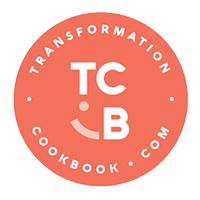You need More Protein at Breakfast
A recent study investigated the effects of a high protein breakfast What the researchers found may just send you scrambling for your eggs!
Skipping breakfast is a common occurrence in the lives of many. Rushed for time. Trying to cut calories. No food in the house. I’ve heard about every reason (read: excuse) in the book.
Now research confirms that your Mum was right, breakfast is the most important meal of the day...
A recent study investigated the effects that skipping breakfast versus eating a normal protein breakfast or a high protein breakfast had on young women. This population is one of the most likely to skip breakfast on a consistent basis.
What the researchers found may just send you scrambling for your eggs!
Skipping breakfast led to increased feelings of hunger throughout the morning, a greater amount of food eaten at lunch and dinner, an increased consumption of high fat snacks after dinner, and increased activation in areas of the brain related to food-reward motivation.

This study confirmed many others that show how essential eating breakfast is for healthy weight management.
If you want to shed those unwanted Covid kilos, breakfast is essential.
Breakfast eaters are shown to be more satiated, eat smaller lunches and dinners as well as show decreased activity in areas of the brain related to food-reward motivation.
Can I eat just any breakfast?
A high protein breakfast (35 grams of protein) further improved satiety and appetite control when compared to a normal protein breakfast (13 grams of protein). Not only did it result in the consumption of fewer calories at lunch and dinner, but also eliminated the consumption of late night high-fat, calorie dense snacks.
The high protein breakfast also reduced neural activation in regions of the brain that control food motivation or food-reward behaviour.
What does that mean?
It means that eating a high protein breakfast can keep us form over eating later in the day. It also means that protein may be the key to keeping us from stuffing our faces in order to feel good. Once the food-reward feedback is triggered it is often hard to step away from the cakes or cookies that seem to be calling our name.
Skipping breakfast or consuming a normal protein breakfast (such as ready to eat cereal) did not have this same effect. In fact, skipping breakfast caused an increase in activity in these areas resulting in the calorie dense, high–fat snack ingestion at night- an increased drive to reward with food.

The ingestion of protein affects gastrointestinal hormones, which subsequently affect areas of the brain causing alterations in hormones controlling appetite, satiety, and energy intake.
“These data support the role of increased dietary protein at the morning meal to provide immediate and/or sustained improvements in the appetitive and hormonal signals that control food intake regulation.”
Eating breakfast is good. Eating a breakfast high in protein (35 grams) is better. It causes changes in appetite and hormonal function, reducing hunger later in the day, increasing satiety and decreasing the motivation for food-reward behaviour. It also leads to greater reductions in hunger stimulating hormones, and greater reductions in late night, high-fat food consumption.
The next question is, what should I eat for a high protein breakfast?

The science
- Odegaard AO, Jacobs DR, Steffen LM, Van Horn L, Ludwig DS, Pereira MA. Breakfast frequency and development of metabolic risk. Diabetes Care 2013;36:3100–6
- Leidy HJ, Ortinau LC, Douglas SM, Hoertel HA. Beneficial effects of a higher-protein breakfast on the appetitive, hormonal, and neural signals controlling energy intake regulation in overweight/obese, "breakfast-skipping," late-adolescent girls. Am J Clin Nutr 2013;97:677–88.
- Brown AW, Bohan Brown MM, Allison DB. Belief beyond the evidence: using the proposed effect of breakfast on obesity to show 2 practices that distort scientific evidence. Am J Clin Nutr 2013;98:1298–308
- NPD Group, Inc. U.S. consumers love their breakfasts and morning snacks whether in- or away-from-home. 2016. Available from: https://www.npd.com/wps/portal/npd/us/news/press-releases/2016/us_consumers_love_their_breakfasts_and_morning_snacks_whether_in_or_away_from/. Accessed February 29, 2018.
- Leidy HJ, Gwin JA, Roenfeldt CA, Zino AZ, Shafer RS. Evaluating the intervention-based evidence surrounding the causal role of breakfast on markers of weight management, with specific focus on breakfast composition and size. Adv Nutr 2016;7(Suppl):563S–75S
- Gwin JA and Leidy HJ. A Review of the Evidence Surrounding the Effects of Breakfast Consumption on Mechanisms of Weight Management Adv Nutr 2018 Nov 1;9(6):717-725.
- Leidy HJ, Clifton PM, Astrup A, Wycherley TP, Westerterp-Plantenga MS, Luscombe-Marsh ND, Woods SC, Mattes RD. The role of protein in weight loss and maintenance. Am J Clin Nutr 2015;101:1320–9.
- de Graaf C, Hulshof T, Weststrate JA, Jas P. Short-term effects of different amounts of protein, fats, and carbohydrates on satiety. Am J Clin Nutr 1992;55:33–8
- Leidy H, Racki E. The addition of a protein-rich breakfast and its effects on acute appetite control and food intake in “breakfast-skipping” adolescents. Int J Obes 2010;34:1125–33
- Lombardo M, Bellia A, Padua E, Annino G, Guglielmi V, D'Adamo M, Iellamo F, Sbraccia P. Morning meal more efficient for fat loss in a 3-month lifestyle intervention. J Am Coll Nutr 2014;33:198–205
- Thomas EA, Higgins J, Bessesen DH, McNair B, Cornier MA. Usual breakfast eating habits affect response to breakfast skipping in overweight women. Obesity 2015;23:750–9
- Schlundt DG, Hill JO, Sbrocco T, Pope-Cordle J, Sharp T The role of breakfast in the treatment of obesity: a randomized clinical trial Am J Clin Nutr. 1992 Mar; 55(3):645-51.
- Neumann BL, Dunn A, Johnson D, Adams J, Baum JI. Breakfast macronutrient composition influences thermic effect of feeding and fat oxidation in young women who habitually skip breakfast. Nutrients 2016;8:490.
- Bo S, Fadda M, Castiglione A, Ciccone G, De Francesco A Fedele D, Guggino A, Caprino MP, Ferrara S, Boggio MV. Is the timing of caloric intake associated with variation in diet-induced thermogenesis and in the metabolic pattern? A randomized cross-over study. Int J Obes 2015;39:1689–95
- Karst H, Steiniger J, Noack R, Steglich HD. Diet-induced thermogenesis in man: thermic effects of single proteins, carbohydrates and fats depending on their energy amount. Ann Nutr Metab 1984;28:245–52
- Kobayashi F, Ogata H, Omi N, Nagasaka S, Yamaguchi S, Hibi M, Tokuyama K. Effect of breakfast skipping on diurnal variation of energy metabolism and blood glucose. Obes Res Clin Pract 2014;8:e201–298.
- Nair KS, Halliday D, Garrow JS. Thermic response to isoenergetic protein, carbohydrate or fat meals in lean and obese subjects. Clin Sci (Lond) 1983;65:307–12
- Mansouri et al. Breakfast consumption pattern and its association with overweight and obesity among university students: a population-based study. Eat Weight Disord. 2020 Apr;25(2):379-387
- Lombardo et al. Morning meal more efficient for fat loss in a 3-month lifestyle intervention. J Am Coll Nutr. 2014;33(3):198-205.
- Leidy et al. Evaluating the Intervention-Based Evidence Surrounding the Causal Role of Breakfast on Markers of Weight Management, with Specific Focus on Breakfast Composition and Size. Adv Nutr. 2016 May; 7(3): 563S–575S
FOLLOW Dr Paul Cribb PhD.





